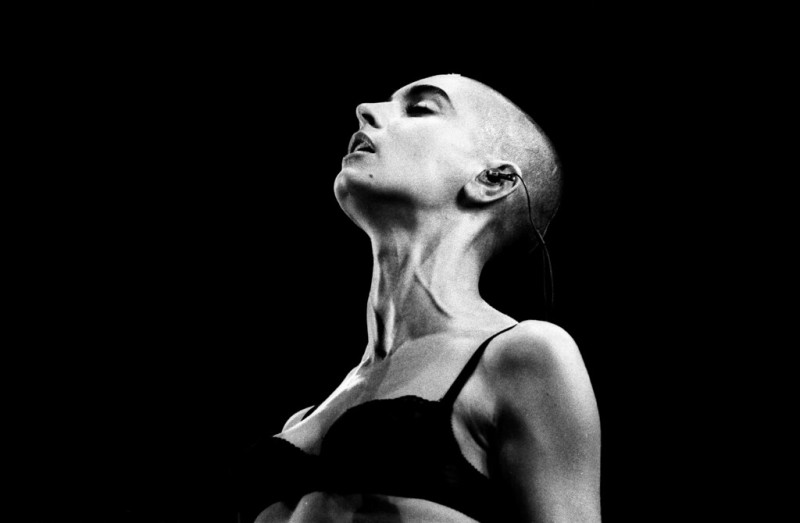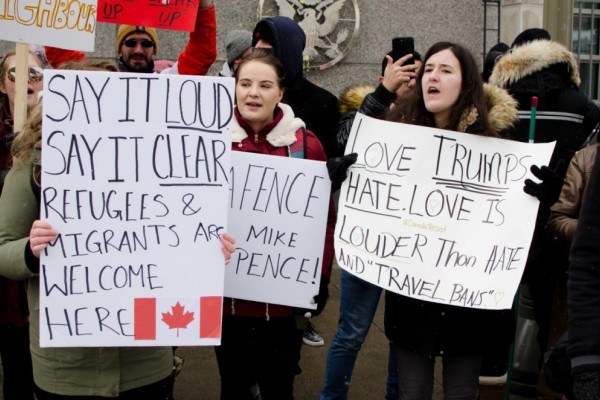Sinéad O’Connor: Farewell to a fearless protest singer
“A soaring voice for the oppressed of the world”

Sinead O’connor performing in Santiago, Chile, 1990. Photo by Marcelo Montecino/Flickr.
Singer Sinéad O’Connor was not of this world. She was an ethereal talent and fearless political activist who existed beyond the margins of respectability and societal expectation. When she died last week at 56, she left behind an artistic and political legacy of struggle and courage against oppression and for the voices of the impoverished, abused, and forgotten people of the world.
O’Connor was an artist first. In the wake of her death her politics has eclipsed her astounding talent as a singer and songwriter. She rocketed to fame in Ireland and internationally on the strength of a voice that ranged from quiet beauty to soaring power and abrasion. On her first album, The Lion and the Cobra, released in 1987, she pioneered an alternative sound that would influence artists like Courtney Love, PJ Harvey, Liz Phair and Alanis Morrisette. She could have made a successful career solely on the strength of her interpretations of other artists and her uncanny instincts for song choices and production.
O’Connor found international commercial success with her second record and the single “Nothing Compares 2 U,” written by Prince. The success of the single thrust her into the public eye and brought to the surface the contradictions between the expectations of international stardom and how O’Connor viewed herself.
O’Connor grew up in a stifling Irish society dominated by colonial oppression and the Catholic church. She came of age during the height of the Troubles in the 1970s. Music was a way to deal with her tumultuous teenage years, part of which was spent in a Magdalene asylum in Drumconrath. O’Connor was raised amid personal and societal conflicts that informed a politics in which she resoundingly sided with the marginalized and oppressed.
O’Connor wrote for the Irish Socialist Worker newspaper in March 1992.
These politics also dominated much of O’Connor’s songwriting in the early part of her career. “Black Boys on Mopeds” from her second record in 1990 is a Black Lives Matter anthem 25 years before the movement started. It decried the police brutality faced by Black communities in Britain and placed the hypocrisy of Margaret Thatcher at the centre of her attack. O’Connor could also write in a deeply introspective voice connecting the political with the personal. “This is a Rebel Song,” from Gospel Oak in 1997, was written as a response to U2’s “Sunday Bloody Sunday” to confront the war in Northern Ireland through the lens of a personal relationship.
Controversy followed her from the earliest days of her career, even when she didn’t directly seek it. But she could be wryly funny in response. In 1990, when American demonstrators protested her refusal to perform after the “Star Spangled Banner” at a concert venue in New Jersey, O’Connor donned a wig and arrived at the protest to observe in disguise. She later defended the right of the crowd to assemble and admitted she was gratified that fans let the protest continue. In ways like this, O’Connor defied easy categorization or definition. She sometimes held contradictory positions but her beliefs matured as she grew.
O’Connor was aware of the barriers that existed between singing and speaking politically. In her memoir she recalled “in real life you aren’t allowed to say you’re angry, but in music you can say anything.” In 1992 O’Connor crashed through the barrier between performance and political speech and made her most famous and notorious statement after a Saturday Night Live performance of Bob Marley’s “War.” Holding a photograph of Pope John Paul II that had belonged to her mother, she shouted, “Fight the real enemy,” and tore the photo to pieces. Shocked American fans and media turned on her with startling ferocity.
The moment would come to define O’Connor and effectively ended her career as a pop star. But she knew this would happen and she accepted it as the fate of her chosen vocation, which she did not see as international celebrity. She saw herself first as a protest singer.
Because of her different perspective, O’Connor didn’t view the fallout from the SNL moment as a loss. She was ready to leave her pop career behind and focus on live performance. In her 2021 memoir, Rememberings, she recalled, “I wasn’t born to be a pop star. You have to be a good girl for that. Not be too troubled.” O’Connor had her own definitions of success that did not include reputation or wealth. She wrote, “I define success by whether I keep the contract I made with the Holy Spirit before I made one with the music business. I never signed anything that said I would be a good girl.”
The SNL protest was not without careful planning or consideration. In 2022 Hilary Plum wrote about the connections O’Connor made between legacies of colonial trauma and child abuse. It was no accident that O’Connor paired her protest with a performance of Marley’s “War,” an anthem about the harms of colonialism. Her statement against the Pope was larger than the iconoclastic tantrum it appeared to be for American audiences. O’Connor was striking back against empire, Christianity, and all the abuse it has allowed and protected. That was the enemy she was imploring her audience to fight against, but the message was lost on an American public not yet ready to confront sexual abuse in the Catholic church.
O’Connor’s only disappointment about the moment was that others were not prepared to listen to her message and that she found so little support from others in the music industry. As so many have pointed out since her death, her position was correct.
O’Connor refused to conform to any external expectation of how she was supposed to be. She was her own person, and this gave her a great depth of humanity and empathy for others. Well before her SNL appearance O’Connor already seemed aware that her advocacy would cost her dearly. At the end of “Black Boys on Mopeds” she sings,
These are dangerous days
To say what you feel is to dig your own grave
Remember what I told you
If you were of the world, they would love you
Sinéad O’Connor spoke her mind at great personal cost but was wrong about being loved. She will rest in power as a soaring voice for the oppressed of the world.
Ted McCoy is a historian and an Associate Professor in the Sociology Department at the University of Calgary. He is on Twitter at @tedmccoy.










